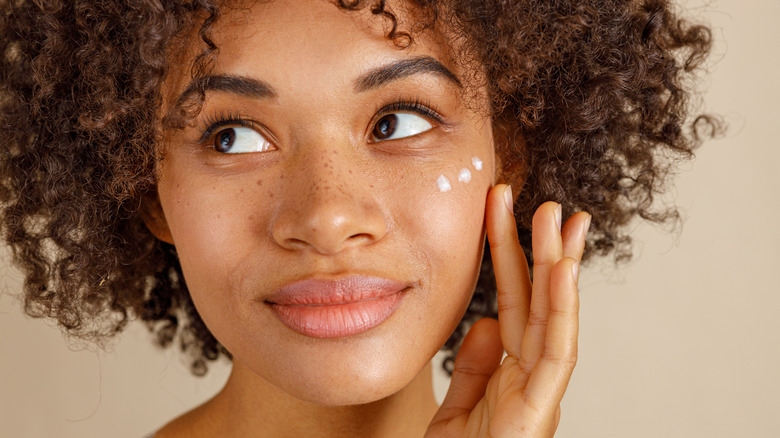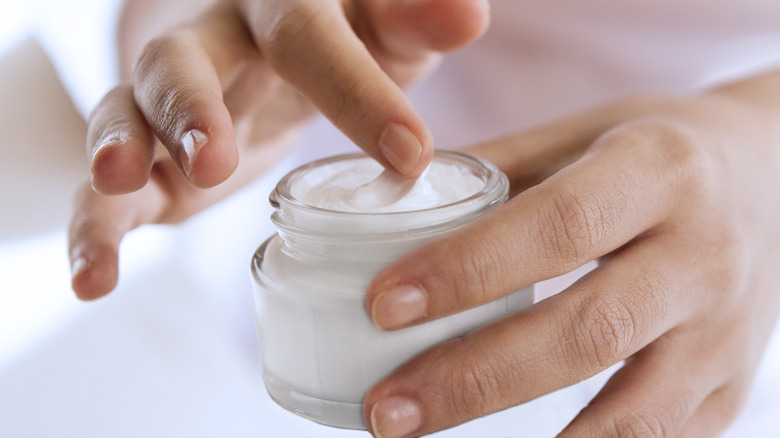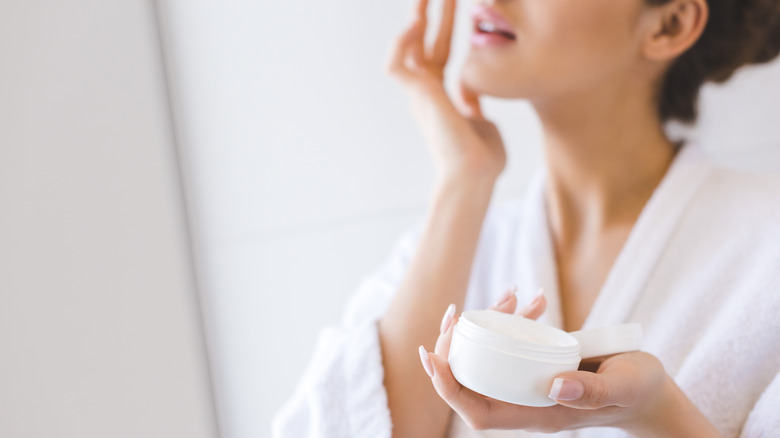What Is Phenoxyethanol And Why Should You Add It To Your Skincare Routine?
Researching skin care regimens often leaves us with a long list of words to look up. Phenoxyethanol is just one example of many. You may have come across this preservative while researching products on the internet or on the ingredients list of items in the skincare aisle. The beauty products you're using often include names of ingredients that we don't come across in day-to-day life unless you're a chemist or biologist. That being said, it makes sense that many of us are drawn to all-natural, clean skincare brands and products.
But even products marketed as "natural" may include this unfamiliar-sounding preservative. But don't be alarmed. Just because it takes a few tries to pronounce the word doesn't mean that this ingredient is bad for you or your skin. In fact, phenoxyethanol may not get all the credit it deserves in the skincare world and could even be the unsung hero on your bathroom counter.
Phenoxyethanol: the bacteria-fighting preservative
Fee-naak-see-eh-thuh-nuhl. According to Google's pronunciation service, phenoxyethanol sounds like a combination of "feen," "oxy," and "ethanol." According to Drug Bank, this chemical compound has historically been used for a long list of tasks ranging from conveniently repelling bugs to being a life-saving antiseptic. The chemical is antimicrobial, making it a perfect contender as a preservative for skincare and cosmetic products. That is what phenoxyethanol is known for today, according to WebMD. As a preservative, phenoxyethanol keeps bacteria from making a home in your bottles of foundation or moisturizer tubes. In addition to bacteria, phenoxyethanol can prevent fungi and yeast from growing in your cosmetics. Thus, your products have a longer shelf life.
For most, phenoxyethanol is safe to use in small concentrations of less than one percent, according to a study published in the National Library of Medicine. However, some may find phenoxyethanol as an irritant, meaning you could be allergic. In that case, talk to a physician about the options best for you and your skin.
Who should avoid phenoxyethanol
Those who are allergic to the preservative phenoxyethanol should definitely avoid using cosmetics, soaps, and sunscreens that include this chemical compound, per WebMD. According to Heidi Waldorf, MD, you might know if your skin is predisposed to sensitivities and thus should try products with phenoxyethanol in a controlled dose. "If you have a tendency toward eczema or sensitive skin, either avoid products containing it or do a self-patch test first," Waldorf told Byrdie.
Additionally, babies should not be exposed to high amounts of phenoxyethanol. In 2008, the FDA released a warning about Mommy's Bliss Nipple Cream, which was reportedly unsafely exposing babies to the preservative, according to NBC News archives. The ingredient chlorphenesin also contributed to side effects, according to the report. "FDA is particularly concerned that nursing infants are being unwittingly exposed by their mothers to this product with dangerous side effects," the FDA's director of the Center for Drug Evaluation and Research said in a news release at the time. If you are nursing an infant, be aware of how much phenoxyethanol may be transferred to your baby through lotions or creams on your breasts.


